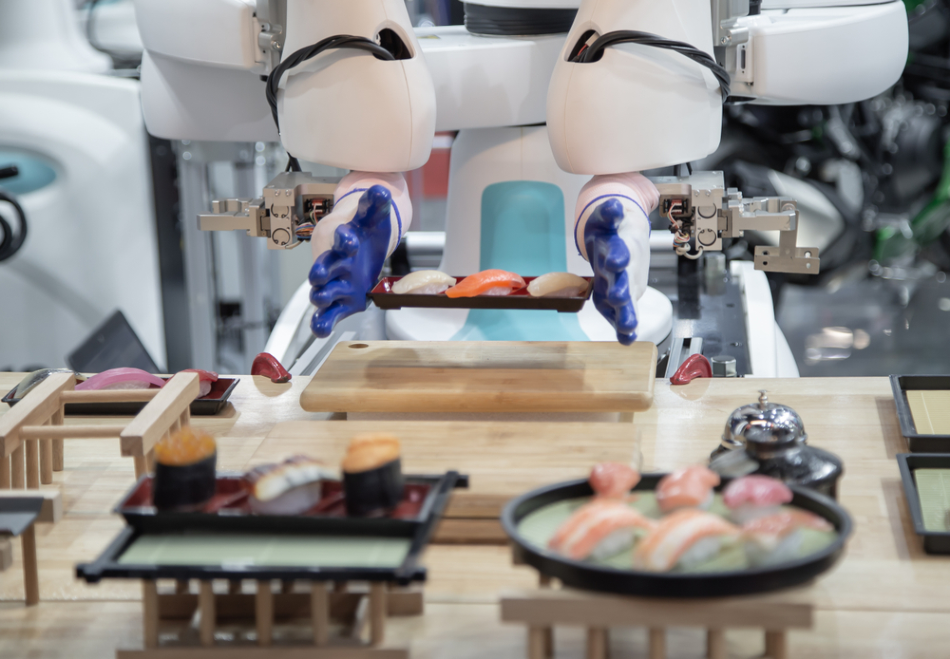
Image Credit: Itsanan/Shutterstock.com
For many years, futurists, researchers, and science fiction authors have been hoping for a robot that can actually cook. With the advancement of artificial intelligence methods, commercial organizations have constructed prototype robot chefs, even though none of these models are presently available in the market. Added to this, these prototypes lag much behind their human counterparts with respect to skill.
Cooking is a really interesting problem for roboticists, as humans can never be totally objective when it comes to food, so how do we as scientists assess whether the robot has done a good job?
Dr Fumiya Iida, Study Lead, Department of Engineering, University of Cambridge
It is a difficult job to teach a robot to prepare and cook food because it has to tackle complex issues in terms of sensing, computer vision, robot manipulation, and human-robot communication, and deliver a reliable, final product.
Taste also varies from one individual to another—cooking happens to be a qualitative task, whereas robots usually do well in quantitative jobs. Taste is not universal and, therefore, there are no universal solutions. Contrary to other optimization issues, unique tools must be created for robots to make food.
While robots have been trained by other research teams to prepare pancakes, cookies, and even pizza, such robot chefs have not been improved to handle the various subjective variables involved in the cooking process.
For a long time, egg dishes, omelets especially, have been regarded as a test of culinary skill. According to a famous piece of French culinary mythology, each of the one hundred pleats found in a chef’s hat denotes a different method to prepare an egg, but the actual origin of this proverb is not known.
An omelette is one of those dishes that is easy to make, but difficult to make well. We thought it would be an ideal test to improve the abilities of a robot chef, and optimise for taste, texture, smell and appearance.
Dr Fumiya Iida, Study Lead, Department of Engineering, University of Cambridge
Now, in association with Beko, Iida and his collaborators have effectively trained their robot chef to make an omelet, right from cracking the eggs to plating the completed dish. The study was carried out in the Department of Engineering of the University of Cambridge, using a test kitchen provided by Symphony Group and Beko plc.
Devised by Iida’s research team, the machine learning technique uses a statistical tool, known as Bayesian Inference, to extract a maximum amount of information from the restricted quantity of data samples. This step had to be done so that the human tasters are not over-stuffed with omelets.
Another challenge we faced was the subjectivity of human sense of taste—humans aren’t very good at giving absolute measures, and usually give relative ones when it comes to taste. So we needed to tweak the machine learning algorithm—the so-called batch algorithm—so that human tasters could give information based on comparative evaluations, rather than sequential ones.
Dr Fumiya Iida, Study Lead, Department of Engineering, University of Cambridge
But how does one measure up the robot as a chef? “The omelettes, in general, tasted great—much better than expected!” Iida added.
The outcomes demonstrated that machine learning can indeed be employed to achieve quantifiable enhancements in food optimization. Moreover, a method like this can be easily applied to numerous robotic chefs.
However, more research needs to be performed to analyze other optimization methods and their feasibility.
“Beko is passionate about designing the kitchen of the future and believes robotics applications such as this will play a crucial part. We are very happy to be collaborating with Dr Iida on this important topic,” concluded Dr Graham Anderson, the industrial project supervisor from the Cambridge R&D Centre of Beko.
Journal Reference:
Junge, K., et al. (2020) Improving Robotic Cooking using Batch Bayesian Optimization. IEEE Robotics and Automation Letters. doi.org/10.1109/LRA.2020.2965418.
Can robots make omelettes?
Video Credit: University of Cambridge.